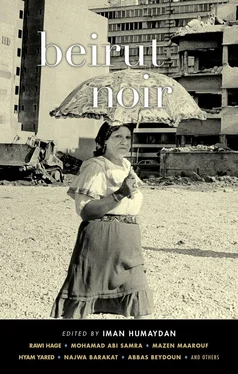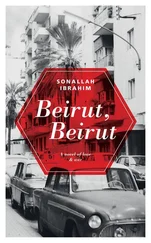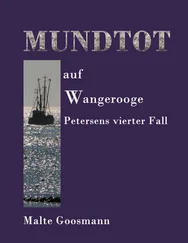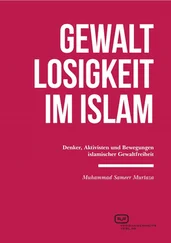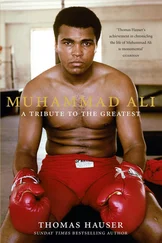No, I am not nostalgic for anything. I still steer clear of tender feelings, just as I used to do in Beirut whenever their echoes would reach me, like from the stories told by friends during the war. They would recount what went down with them — the life of their country and its people before the war. At that time I didn’t feel that I had a past that I was cut off or uprooted from, or that I would long for. It was as if the war didn’t besiege me, in the way they used to say that it had besieged them. I lived time and moments spirally, like now — with nothing behind me, without a trace, a lineage, or roots binding me to places and times that my friends in Beirut felt they were disconnected from, regretting the demise of those things and proclaiming their nostalgia in their stories.
In coffeehouse sessions on Hamra Street and evening gatherings at home, they used to talk about different villages, towns, regions, and neighborhoods. But it was strange to me: I didn’t understand their distinctions except for the names. At the many party meetings I attended of what was called the Artists’ and Intellectuals’ Cell of the Lebanese Communist Party, I didn’t understand anything at all. Nothing they said about the reasons for the war — its parties, battles, and regions — spoke to me. None of this altered my view of the war and its fighters. The announcements by the person in charge of the Party cell, while playing with the hairs of his long beard, would incite my sarcastic commentary. If I understood some of its ideas and hollow rhetoric, I would conceal my sardonic laughter, which I used to let out raucously whenever I heard a speaker unleashing his tirades at massive partisan rallies in Beirut. If rallies like this were paying tribute to the Party’s martyrs, I would conceal my giggles amidst the screams of party members crowded around with their slogans and applause for the speakers, before turning to my journalist girlfriend without whom I never attended a rally, and saying to her, “Look, look at him on the podium — he’s about to blow someone up or kill someone. Is he carrying a gun? Look, come on, let’s get out of here.” My friend would manage a shy, scared smile and her reluctance to applaud like everyone else made me envious.
My cynicism of the idea of the martyrs grew after the armed groups started showing off their dead — counting them, glorifying them, and competing for greater numbers. When the expression “the Party’s martyrs” became popular and spread throughout the Communists’ daily speeches, I told my comrade friend that this had become a registered trademark, which we’ve all shared in creating and promoting. I, for example, designed recruitment posters in the communal studio allocated by the party leadership to amateur artists who were party members, and their friends. The studio was in a working-class Beirut neighborhood mostly filled with Druze and Christians. The other Communist artists and I were the ones who set up the studio, and we worked for months there drawing and designing posters of martyrs and training the beginners. But it quickly turned into a headquarters for the fighters, a refuge to hold meetings, and somewhere to sleep after the intensification of battles after the war spread throughout the whole city.
When I entered the studio for the last time on the morning of an intensely hot summer day, all of my senses were invaded by a smell that froze my body in its place. I felt that it had crashed into a gelatinous, organic material, with my eyes as wide open as they could be, so I closed them and stopped breathing. In vain I took steps to repel this odor that I could smell emanating from inside my skin, so I ran outside. I couldn’t forget that smell from the main room of the studio that morning. Along with the weapons, rounds of ammunition, and piles of military clothes and shoes strewn around, bodies of fighters — naked except for underpants — covered in regretful sleep, were piled up on filthy mattresses made of naked sponge foam.
Whenever I remember a scene, incident, or person from those Beiruti days, my ears are provoked by echoes of a song about the mothers of martyrs, whose words I’ve forgotten. I’ve totally erased them from my memory. It’s a song inhabited by time, place, and language, like space or a floating rhythm that the whole world swims in. The closed, claustrophobic world of everyone I knew and who knew me in Beirut those days at the beginning of the war. But how can forgotten words remain a stronger and deeper presence in my memory than things and faces and scenes? It’s as if words, if they are forgotten and erased, leave a void behind them inhabited by a mysterious physical force that can’t stop memories and their moments. A poet who was a member of the Party’s intellectual cell wrote the words to that song. He used to be in love with me. Perhaps that’s because I was the only woman in the cell. All of them, one after the other, tried to get together with me. The singer of the song offered his deep love to the martyrs, with all the passion of his spoiled, childlike voice. Once he offered to take me home in his car after we’d left a meeting at the cell leader’s house. On the way he started flirting with me and invited me to dinner at a restaurant on Hamra Street. I asked him, giggling, “You are dedicated full-time to loving the martyrs, why do you love me? How can you?!” I had an aversion to his sharp, high-pitched voice, as if he were a teenage schoolgirl softening her tone when addressing a teacher who confused her in class.
Dusty, gray, and sticky, like that oily layer on the skin of my Party journalist friend’s face, moments from those Beirut days at the beginning of the war are present in my memory now. I used to figure that the day’s hot, mucous-like stickiness would only soil me as a curious spectator. That stickiness would be kneaded in things and objects, like vomit, as if it were its original material. As if it were a coagulated substance in the bodies of humans and their relationships, meetings, words, and voices; in streets, places, and houses at all times. While they slept and when they woke up late in the morning, a magnetized tinfoil fog would stain the city’s low-hanging sky. They would walk on the ground with heavy aborted footsteps, as if they were battling through a womb’s serum mixed with urine and dirt on the asphalt on sticky days, and nights when opaque, scarce lights resembled a carbon fog on faces... I moved through these moments with my journalist friend, as if she were my blind guide born of the womb of that world, as if I were a guide for her slow emergence onto its shores.
Was I truly a spectator standing on the shores of this world that Beirut drowned in years before I left it? Were there even shores over there? I don’t know.
I didn’t step into the small, glass shower stall. Naked, walking barefoot in the corridor to my bedroom, the feel of the threads of the small silk rug in front of my wardrobe sent soft tremors from my feet to the edges of my naked body. With my own eyes I glimpsed the anonymous person, the narrator of imaginary scenes of my life, my nakedness illuminated by the dusty light emanating from two old lamps covering the glass of two small wooden bedside tables. The dusty light behind me drowned things in the room in still, concealed shadows and I imagined the light intimate and pale on my naked back. I passed the palm of my hand ever so slowly over the small dark-blond freckles on my shoulders. All of the men whom I’ve gotten naked for have rubbed their lips on these freckles that the Beiruti-Baalbaki painter once told me were stars extinguished on my skin. He was the only one of my men in Beirut who I’d responded to, agreeing to be — though I was fifteen years younger than him — an extramarital lover who didn’t ask him one question about it.
Читать дальше
